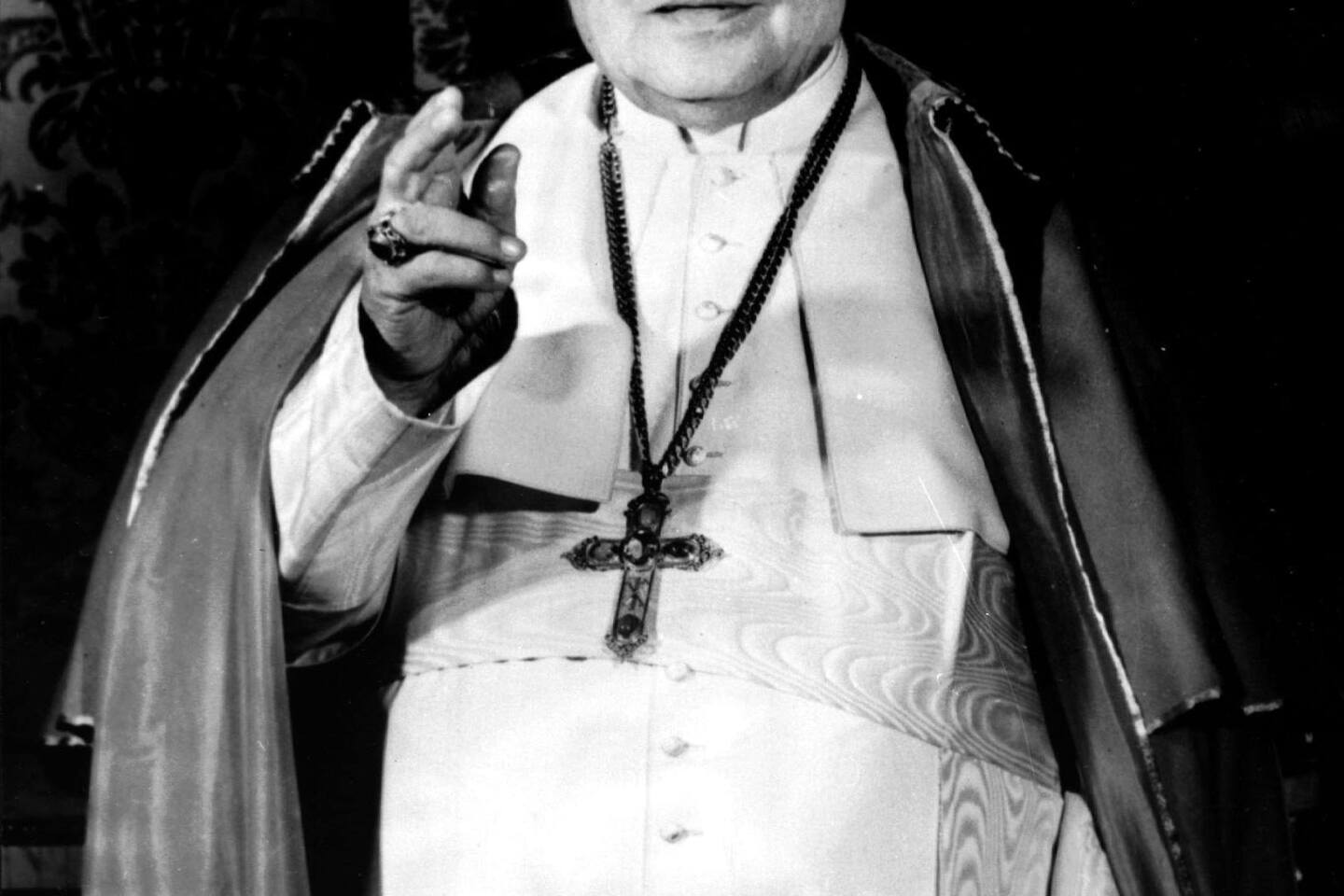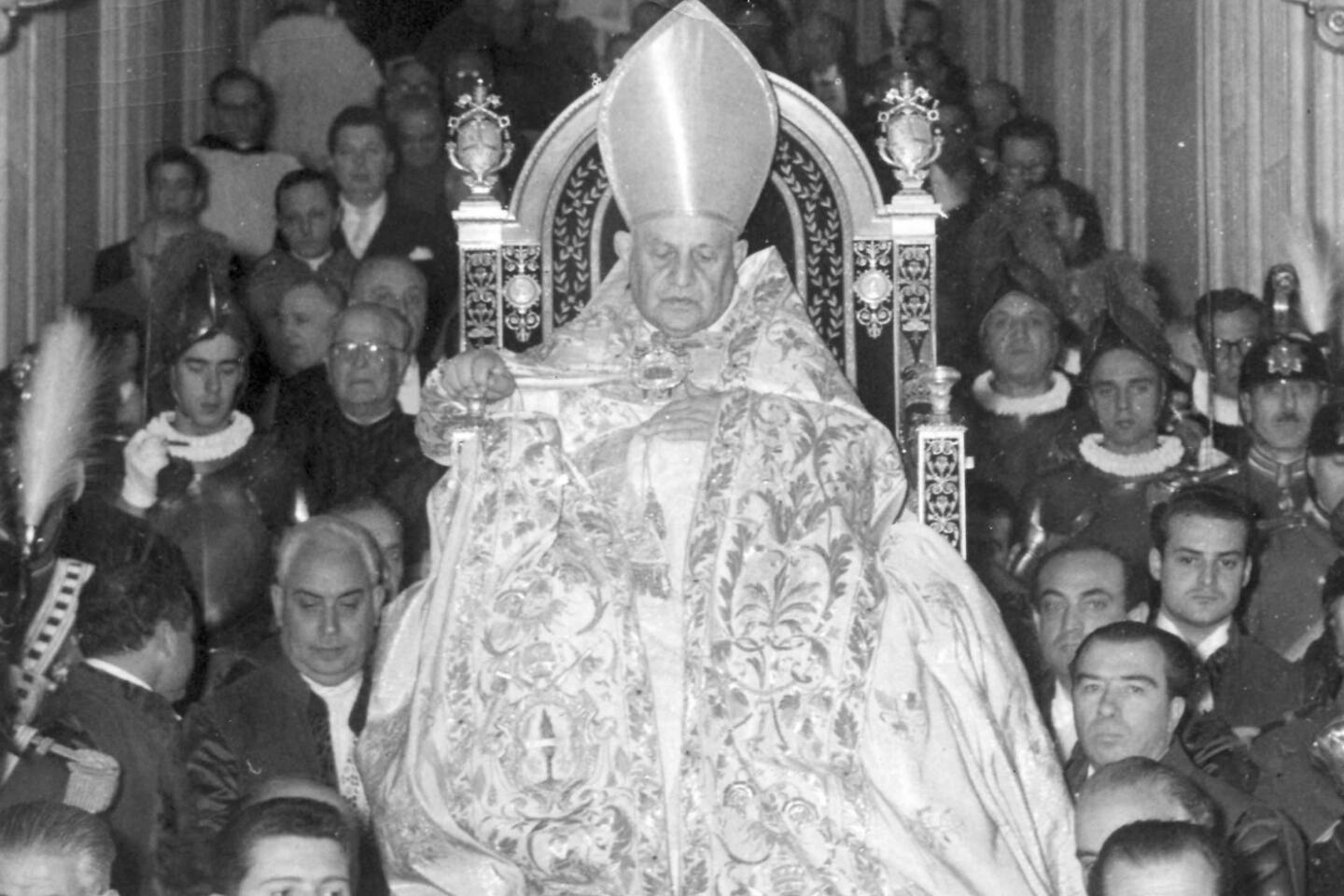Pope John XXIII modernized Catholicism on road to sainthood
- Share via
Reporting from Vatican City — For a pope who was elected when he was 76 and served for just five years, John XXIII has nevertheless come to be seen as one of the most influential popes of the 20th century.
Viewed as a mere stopgap when he was elected in 1958 in the wake of the 20-year reign of Pius XII, John took the Vatican by surprise by calling the Second Vatican Council in 1962. Vatican II, as it came to be known, ushered in Masses in the vernacular instead of Latin, handed more power to bishops and launched a new outreach to other religions.
John did not live to witness the end of the three-year, tradition-altering council, dying of stomach cancer in 1963. But he has been credited for pushing the Vatican into the modern era, a feat that Pope Francis is trying to build on today.
The fourth of 14 children in a poor farming family in northern Italy, Angelo Roncalli was sent to study for priesthood at the tender age of 11, rising to become the Vatican’s envoy in Turkey during World War II. He was credited with saving thousands of Jews during his tenure there, by issuing exit visas and fake birth certificates.
Appointed Patriarch of Venice in 1953, Roncalli was elected pope five years later, gaining the nickname “Il Papa Buono,” or “The Good Pope,” courtesy of his sense of humor and warmth, traits which are now Francis’ trademarks.
“Pope Francis has the ability to be close to people. That really recalls Pope John,” Cardinal Loris Francesco Capovilla told the Italian daily La Repubblica last week. Capovilla, 98, served as John’s papal secretary and was made a cardinal by Francis this year, reflecting the current pope’s high regard for John.
“He was courageous, a good country priest, with a great sense of humor and great holiness,” Francis said last year of John.
Just as Francis peppers his homilies in St. Peter’s Square with informal asides, John is remembered for his speech announcing the Second Vatican Council, during which he told the crowd: “Going home, you will find your children. Give them a caress and tell them, ‘This is the caress of the pope.’”
Known for his quips, John was once asked, “How many people work in the Vatican?” He replied: “About half of them.”
Shortly after he was elected, John was walking in Rome when he overheard a woman commenting to a friend, “My God, he’s so fat!” The pope turned and replied, “Madam, I trust you understand that the papal conclave is not exactly a beauty contest.”
Writing about his family, John said: “There are three ways to face ruin: women, gambling and farming. My father chose the most boring one.”
Despite his joviality, John showed steely determination to open the Vatican to change. He nonetheless insisted on playing down his talents. “It often happens that I wake up at night and begin to think about the serious problems afflicting the world,” he said, “and I tell myself, I must talk to the pope about it. Then the next day when I wake up I remember that I am the pope.”
Kington is a special correspondent.
More to Read
Sign up for Essential California
The most important California stories and recommendations in your inbox every morning.
You may occasionally receive promotional content from the Los Angeles Times.















